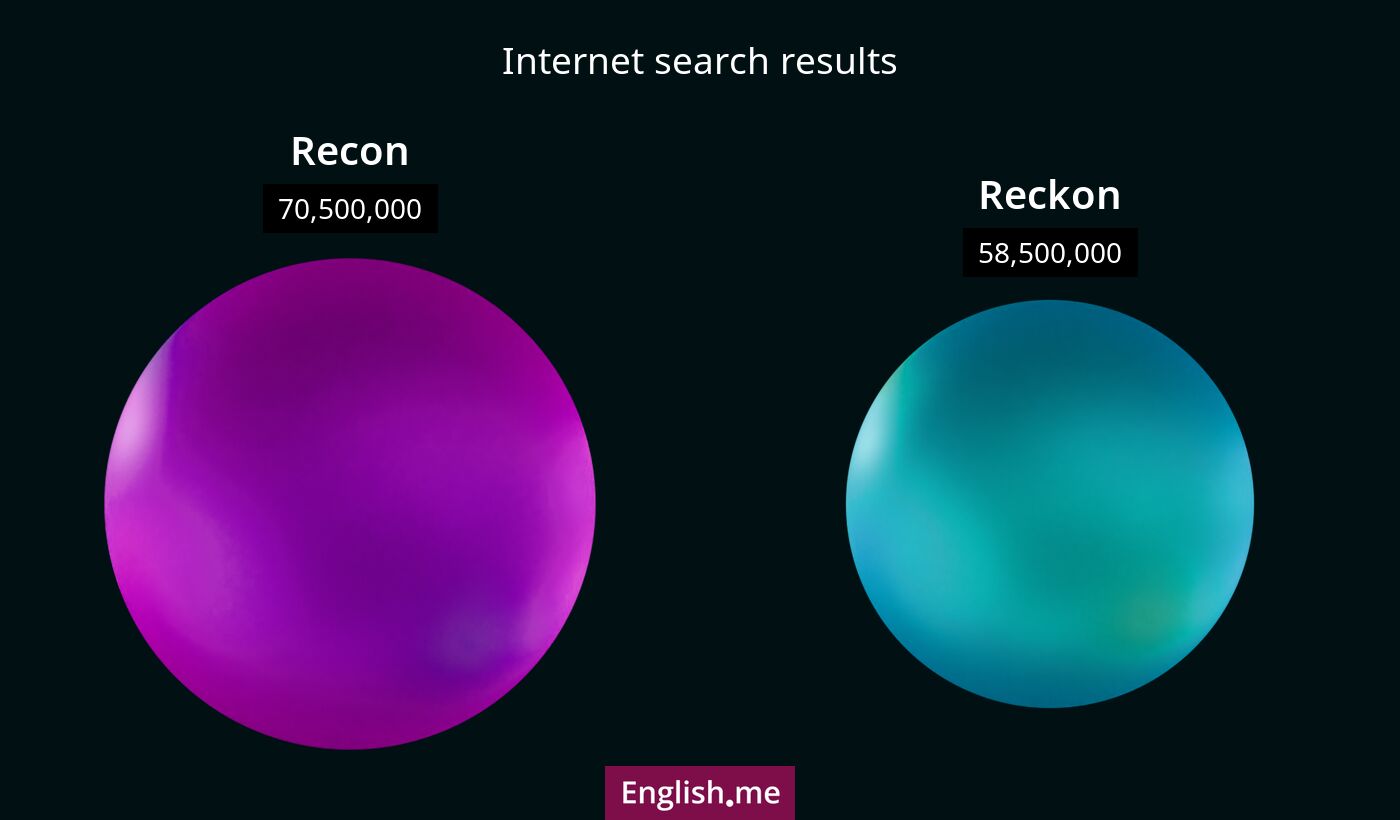"Recon" vs. "reckon": words that travel different paths
Reviewed and edited by  Anwar Kareem 14/04/2025, 12:43
Anwar Kareem 14/04/2025, 12:43
English.me team member

 What is similar?
What is similar?
Both words are short, have only one letter difference, and share a similar "k" sound, making them prone to being confused in spelling or pronunciation.
 What is different?
What is different?
The word "recon" is a shorthand for reconnaissance and is often used in military or tactical contexts, referring to gathering information or scouting. "Reckon" means to think, suppose, or calculate, and it is more commonly used in general or conversational English. Their meanings and typical uses are distinct.
 Which one is more common?
Which one is more common?

 Examples of usage
Examples of usage
Recon- The soldiers went on a recon mission to gather intelligence about enemy positions.
- We need to do a quick recon of the area before proceeding.
- He suggested a recon of the building to identify any potential risks.
- I reckon it'll rain later this afternoon.
- Do you reckon we'll finish the project on time?
- She reckons that moving to another city might solve her problems.

 English
English español
español française
française italiano
italiano deutsche
deutsche 日本語
日本語 polski
polski česky
česky svenska
svenska Türkçe
Türkçe Nederlands
Nederlands